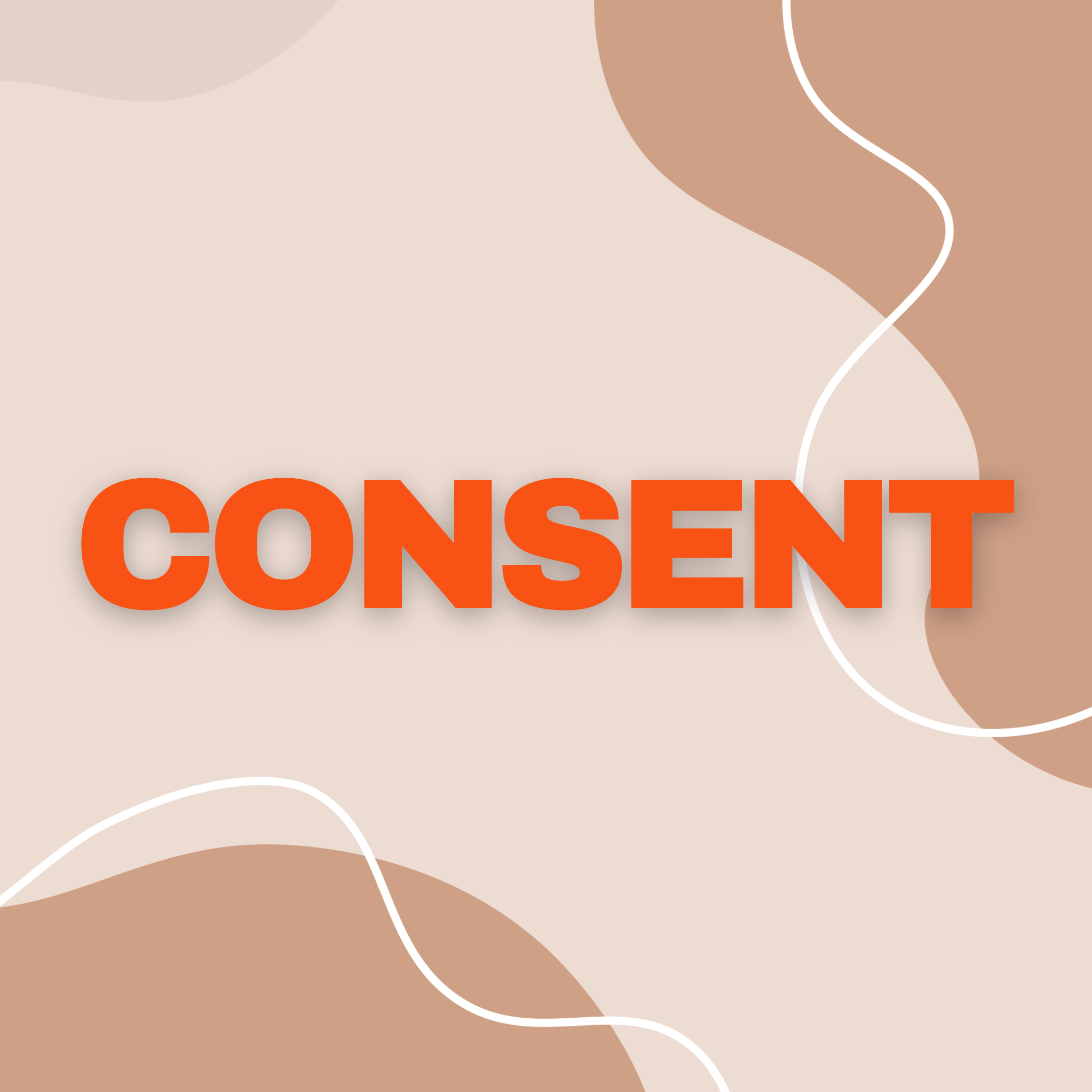
Consent
Consent
What is consent?
Consent is a clear, mutual, and voluntary agreement between participants to engage in specific sexual activity. It involves active communication and the ability to freely choose whether or not to participate without coercion or pressure.
Why is consent important?
Consent is crucial for ensuring that all parties feel safe, respected, and comfortable. It establishes boundaries, builds trust, and promotes healthy sexual relationships. Without consent, sexual activity can be considered assault or rape.
How can consent be communicated?
Consent can be communicated verbally and non-verbally. Verbal consent includes clear and enthusiastic agreements like "Yes" or "I want to." Non-verbal consent might involve nodding, pulling someone closer, or other affirmative actions. It's important to ask for and receive clear consent continuously.
Can consent be withdrawn?
Yes, consent can be withdrawn at any time. If someone initially consents to an activity but then changes their mind, it is important to respect their decision and stop immediately.
What are the signs that someone cannot give consent?
A person cannot give consent if they are:
- Underage
- Unconscious or asleep
- Under the influence of drugs or alcohol
- Experiencing cognitive impairments
- Being coerced, pressured, or threatened
What is enthusiastic consent?
Enthusiastic consent is a positive, active agreement to participate in sexual activity. It goes beyond a simple "yes" and involves showing eagerness and excitement about the activity.
How often should consent be obtained?
Consent should be obtained at every step of a sexual encounter. It's important to check in continuously to ensure that all parties are comfortable and willing to proceed.
Does consent for one activity imply consent for another?
No, consent for one activity does not imply consent for another. Each activity requires its own explicit consent.
What should I do if I'm unsure about my partner's consent?
If you are unsure about your partner's consent, stop and ask. Clear communication is key to ensuring that all parties are comfortable and willing to proceed.
What is the role of power dynamics in consent?
Power dynamics, such as differences in age, authority, or social status, can affect consent. It's important to be aware of these dynamics and ensure that consent is freely given and not influenced by power imbalances.
Can consent be assumed based on past relationships or activities?
No, consent cannot be assumed based on past relationships or activities. Consent must be obtained for each encounter and each activity within that encounter.
What should I do if I experience or witness non-consensual sexual activity?
If you experience or witness non-consensual sexual activity, seek help immediately. Contact law enforcement, medical professionals, or a trusted organization for support and assistance.
How can I educate myself and others about consent?
Educate yourself and others about consent through resources like workshops, books, articles, and discussions with knowledgeable individuals or organizations. Promoting open and honest conversations about consent can help create a culture of respect and safety.
Is verbal consent the only form of valid consent?
While verbal consent is clear and direct, non-verbal cues can also indicate consent. However, it's essential to ensure that non-verbal consent is unmistakable and not open to misinterpretation. When in doubt, ask for verbal consent.
Can consent be given under pressure or manipulation?
No, consent given under pressure, manipulation, or coercion is not valid. Consent must be freely given without any form of force or undue influence.
Where can I get more information about consent and sexual health?
Consult us at Ark Wellness Hub for more information and resources on consent and sexual health.